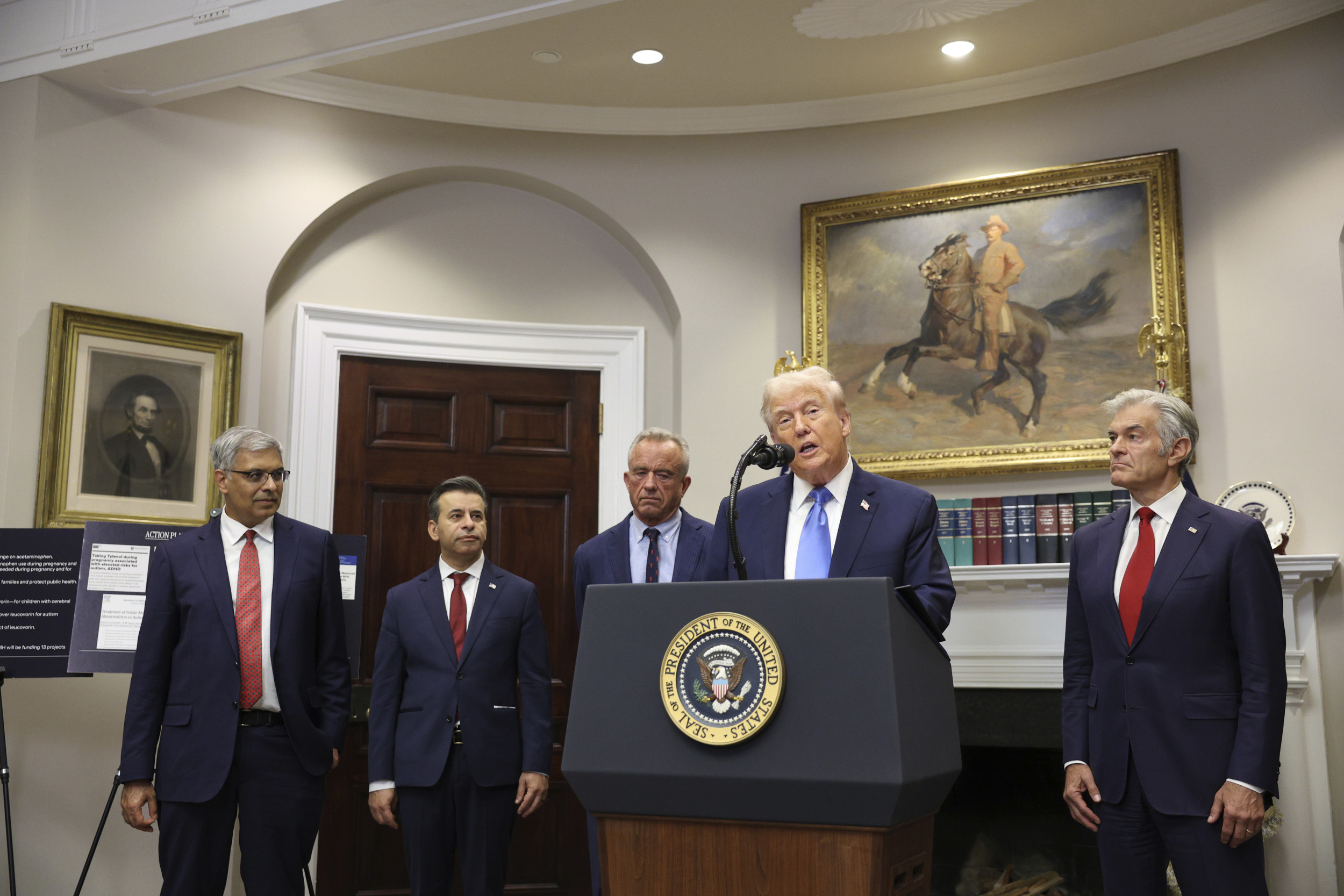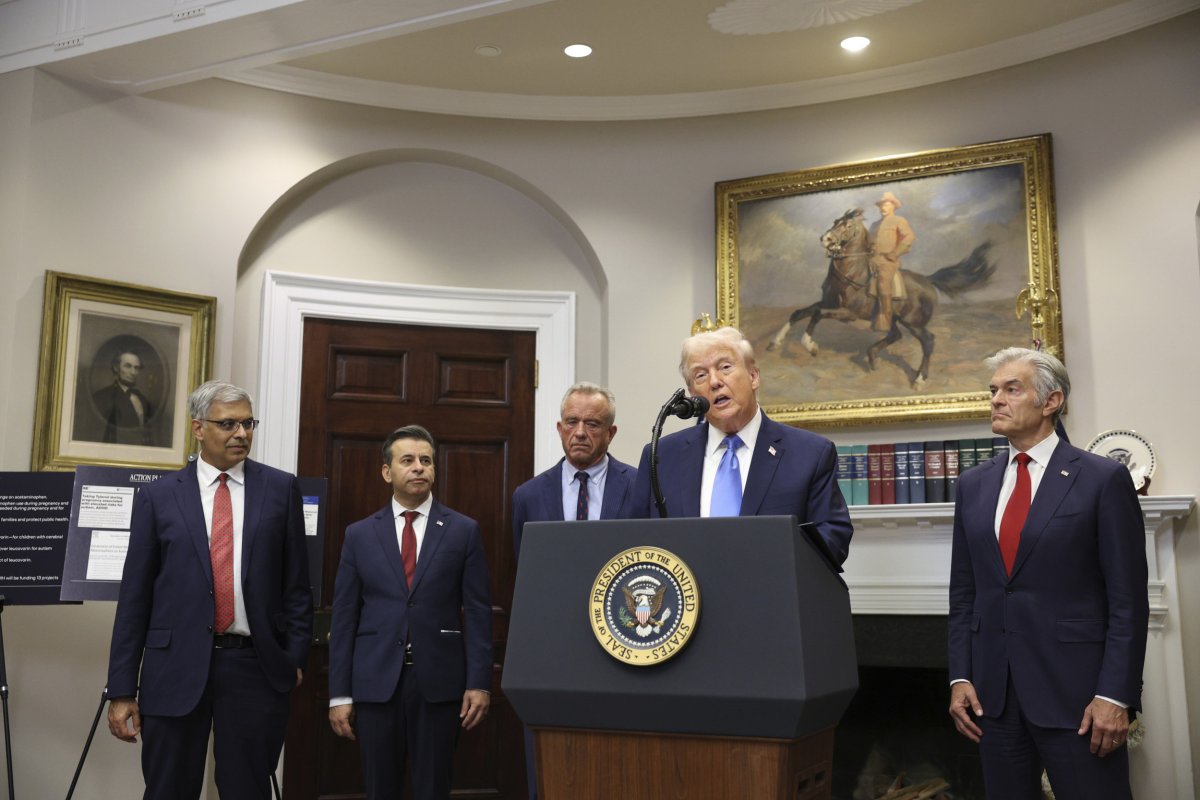
The U.S. Food and Drug Administration has approved a version of leucovorin made by GlaxoSmithKline, years after the company pulled the drug from consideration when it stopped manufacturing it.
The announcement, published Monday in the Federal Register ahead of a speech by President Donald Trump, cited data from 40 patients with a rare disorder called cerebral folate deficiency, which can cause neurological symptoms sometimes seen in people with autism.
The move highlights renewed attention on leucovorin, also known as folinic acid, and whether it might help some children with autism.

Associated Press
Leucovorin is a form of folate, or vitamin B9, long approved by the FDA to counteract the toxic effects of certain cancer drugs such as methotrexate, which block the body’s use of folate. It is also prescribed to boost the effectiveness of some chemotherapy drugs and to treat specific kinds of anemia. The drug, which can be taken orally or intravenously, is made by more than half a dozen companies.
Folate helps cells grow and divide, supports the immune system and aids in producing healthy red blood cells. Low folate during pregnancy can cause neural tube defects, serious birth defects of the brain and spine. For that reason, the Centers for Disease Control and Prevention recommends all women who could become pregnant take 400 micrograms of folic acid daily.
Some studies, though not all, suggest low maternal folate levels early in pregnancy may increase the risk of autism in children.
Doctors have increasingly prescribed leucovorin “off-label,” or outside its approved use, for children with autism. Research from SUNY Downstate Medical Center in Brooklyn and other institutions indicates that as many as three-fourths of children with autism may have genetic variations or autoimmune issues that block folate from reaching the brain.
Several small studies have linked these biological markers with more severe symptoms and suggested leucovorin may improve language, social skills and irritability in some children.
Still, experts caution the science is far from conclusive. The Autism Science Foundation said the evidence remains “in very early stages” and called for larger, more rigorous trials. The group noted that the positive findings come from only four small randomized controlled studies, each using different doses, methods and outcomes — and one focusing on a specific genetic variant.
Dr. David Mandell, a professor of psychiatry and autism researcher at the University of Pennsylvania, said leucovorin may ultimately prove helpful for some children. But he emphasized the evidence is weak.
“Leucovorin might well be a possible treatment for some children with autism,” he told Reuters. “But the evidence we have supporting it is really, really weak.”
For now, leucovorin remains a chemotherapy support drug that some physicians are experimenting with in autism care. The FDA’s decision to approve GSK’s version ensures broader availability, but questions about its role in treating autism are far from settled.
This is a breaking news article. Updates to follow.



